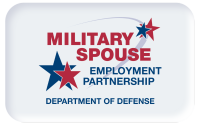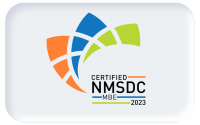This should come as no surprise to anyone, but very few people go to law school thinking they will wind up doing document review for a living. Document review as a career itself is still somewhat new, but I think some attorneys have found a good fit working for alternative legal services providers, first as document review attorneys and then as management. I’ve been offering document review as a career path since 2005 and have employed 100+ attorneys full-time in some capacity on document review teams.

The career path, as I’ve offered it, has been from full-time reviewer (1st pass, QC or Priv) to team lead to project manager to senior project manager to director to vice president and above. In the various companies I’ve worked for, this step-ladder has worked really well to help me first find talented attorneys and then grow the skills necessary to excel in document review throughout the step-ladder of positions.
Make no mistake, document review is a skill. It is not easy to sit and read documents all day and then make quick, consistent decisions on a given set of documents. It is also not easy to sit through 2 hours of training, be given some guidelines and materials to read and then to be expected to know everything there is to know about the work you are about to perform. Imagine showing up on day 1 of any new job and by the end of that day being expected to be 100% accurate and to hit the ground running at a fast pace.When I interview document reviewers I look for articulate, funny and curious people. I have found those to be the most important traits for Managed Review Directors (and above) and so those are the traits I look for at the document review entry level.
Articulate, funny and curious
Articulate
I look for articulate people (attorneys, paralegals or law students) first and foremost. I feel that if you can speak well, you can likely read well and it gives me confidence that they have an acceptable level of intelligence. Clear communication helps me understand how someone processes language and document review is all about language. In document review, we ask Reviewers to read a document and sort into 1 of 3 or 4 categories based on finite criteria we put before them. The problem is, the way people communicate daily isn’t finite and doesn’t easily fit into those 3 or 4 categories. So reading fast, with comprehension of varied vocabularies, is essential to help reviewers make quick decisions on documents, which allows me as a review manager to forecast for documents per hour and overall timeline and cost. If a Reviewer struggles to find the right words in our interview conversations, or uses a very base level vocabulary, then this person is likely not a great candidate for document review.
Funny
Document review is tedious work. I said above that ‘it is not easy to sit and read documents all day’ or ‘to make quick, consistent decisions on a given set of documents’. It’s not – it’s hard work. Your eyes get tired, your mind gets tired and you can sometimes get lost in the monotony of a batch of 100+ financial spreadsheets or 50 versions of a Sales report. So you have to have a sense of humor. You have to be able to come in to work and enjoy the people you work with – to contribute levity to lengthy conversations about the validity of prior art or the tone of trader desk chat log and to take breaks and laugh with your teammates about an episode of The Big Bang Theory (“Fun with Flags” anyone?).
And you need a sense of humor when your Team Lead talks to you about consistency. I mean, it’s not hard enough to make a Responsive decision on a document in less than 60 seconds, we expect Reviewers to make that same decision over and over, absolutely consistently, with no mistakes. I’ve found that if you’ve got a sense of humor, and have become part of a team, this is much easier of a pill to swallow. Reviewers who take themselves too seriously, who lack a funny bone, are the ones who burn out quickly.
Curious
Curiosity is also an essential trait of a Reviewer. Asking questions about the documents, about the process, about the case is the only way to be sure that we are acting as an extension of counsel’s own team. No one wants clones who mindlessly code documents for Responsiveness or Privilege. Especially in our current review landscape, where TAR workflows are paramount, making good decisions on documents has an impact on more than just that one document. In our TAR workflows, each single decision can impact 2 to 100+ documents (coding 1 document may propagate decisions to all near-duplicates). This means that we want the right decision made on every document, so asking questions, especially at the beginning of a project, is key.
As I also think of document reviewers as my next managers and senior team members, I view this early-stage curiosity as a sign that these Reviewers will impact my business as well. If a Reviewer is curious, I also expect that they will question potential pieces of the workflow and the guidelines as well. Wouldn’t it be faster or more consistent if we did this? Isn’t coding documents this way potentially missing these issues?
While document review isn’t what people typically aspire to when they attend law school or get their paralegal certificate, it is a viable career path for law school graduates, unemployed attorneys and paralegals and great experience for law students to get while in school. Document review is not going away and if you decide to choose it as a long-term role, the sky’s the limit for your career development as far as I’m concerned.





